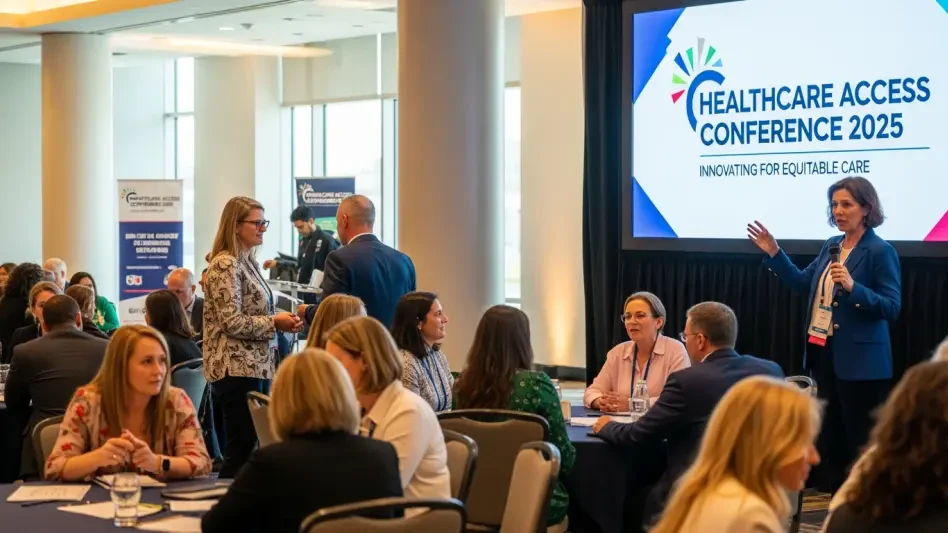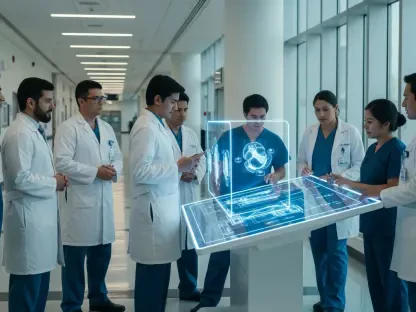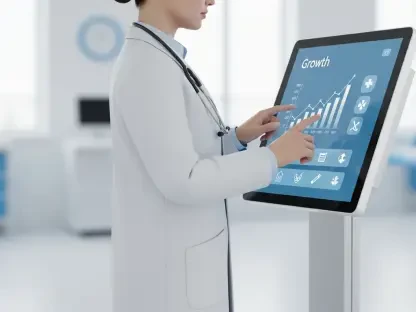In a world where millions still lack basic healthcare, stark disparities persist even within developed regions, with maternal mortality rates in parts of Texas rivaling those in resource-limited countries. On October 27-28, Rice University became the epicenter of a vital conversation, hosting the Innovation for Healthcare Access Conference organized by the Rice360 Institute for Global Health Technologies. This event brought together luminaries from academia, medicine, public health, and policy to confront systemic barriers and forge pathways toward equitable, sustainable health solutions. With a sharp focus on maternal and newborn health alongside chronic disease prevention, the conference underscored Rice University’s commitment to global impact through discovery, setting an ambitious tone for transformative change.
Setting the Stage for Health Equity
The central mission of this landmark gathering was to dismantle entrenched obstacles to healthcare access by championing innovations that are both inclusive and enduring. Hosted at Rice University, the event aligned seamlessly with the institution’s vision, as articulated by Provost Amy Dittmar, to drive discoveries that reshape lives worldwide. Attendees, representing a diverse array of expertise, united under a shared goal: to ensure that cutting-edge technologies and strategies reach underserved communities effectively.
Beyond mere ideation, the conference emphasized actionable collaboration, creating a platform where implementers and thought leaders could exchange insights. Sessions were designed to address real-world challenges, particularly in areas like maternal care and chronic illness management, with applicability spanning local and global contexts. This focus on tangible outcomes established the event as a critical milestone in the journey toward health equity.
Key Moments That Defined the Event
The two-day conference was packed with powerful discussions and activities that illuminated the path forward for healthcare access. Recurring themes of equity, sustainability, implementation science, and technology’s role in accessibility dominated the agenda, inspiring participants to think beyond traditional approaches. From thought-provoking keynotes to hands-on workshops, each segment contributed to a collective understanding of how to translate innovation into impact.
A standout feature was the emphasis on integrating solutions into broader systems, ensuring they do not remain isolated pilot projects. Attendees left with actionable insights, fueled by the dynamic interplay of ideas across sessions. These moments of convergence highlighted the event’s role as a catalyst for progress, painting a vivid picture of what collaborative effort can achieve.
Powerful Insights from Keynote Speakers
Keynote addresses by prominent figures such as Krishna Udayakumar of Duke Global Health Innovation Center and Lisa Hirschhorn of Northwestern University’s Ryan Family Center for Global Primary Care set a compelling tone. Udayakumar underscored the necessity of equity-centered technology, cautioning that without a focus on fairness, innovations risk deepening existing divides. His call for trust in health systems as a cornerstone of adoption resonated deeply with the audience.
Hirschhorn, meanwhile, tackled the critical disconnect between innovation and delivery, noting that countless advancements fail to reach those in need due to implementation gaps. Her emphasis on implementation science as a bridge between discovery and impact sparked discussions on refining delivery mechanisms. These talks not only shaped the conference’s direction but also offered a broader perspective on redefining healthcare landscapes.
Dynamic Debates in Panel Discussions
Panel sessions provided a forum for robust dialogue on pressing issues like policy integration and funding for health equity. Experts from organizations such as the Episcopal Health Foundation dissected the complexities of sustaining innovations through systemic support, advocating for embedding health initiatives within national frameworks. Their insights revealed the indispensable role of policy in securing long-term resources and attention.
Contrasting viewpoints emerged as global success stories were juxtaposed with local challenges, particularly in Texas, where resource constraints often hinder progress. These discussions illuminated the need for scalable solutions tailored to diverse contexts, enriching the conversation with a blend of optimism and pragmatism. The panels ultimately fostered a nuanced understanding of how to balance immediate needs with enduring change.
Practical Engagement through Workshops
Interactive workshops and group activities offered attendees a chance to dive into real-world healthcare challenges with hands-on learning. Sessions on rural care and maternal health featured live demonstrations and collaborative exercises, equipping participants with practical strategies for implementation. These experiences grounded theoretical discussions in tangible applications, enhancing comprehension of complex issues.
Participants engaged actively, brainstorming solutions for underserved settings and sharing cross-disciplinary perspectives. This format encouraged a deeper appreciation of barriers faced by communities, from infrastructure limitations to cultural factors. By fostering such engagement, the workshops became a vital component of the event’s educational impact.
Cutting-Edge Innovations on Display
The conference also served as a showcase for groundbreaking health technologies, with exhibitions highlighting tools like point-of-care HPV tests developed through Rice University collaborations. These innovations demonstrated immense potential to revolutionize access in underserved regions, addressing critical gaps in diagnostics and care. Their unveiling underscored the power of technology when aligned with community needs.
A key discussion during these demonstrations centered on user-centered design, ensuring that solutions remain relevant across diverse environments. Presenters emphasized adaptability and cultural sensitivity as essential for effectiveness, sparking interest in how such tools could be scaled. This segment of the event highlighted the intersection of creativity and practicality in advancing healthcare access.
Reflecting on a Milestone for Change
The Innovation for Healthcare Access Conference at Rice University marked a significant moment in the ongoing battle for equitable healthcare, uniting diverse voices around shared priorities of trust, policy integration, and collaboration. Held on October 27-28, the event illuminated actionable pathways through its focus on equity and sustainability, leaving an indelible mark on attendees. As Rebecca Richards-Kortum noted in her closing remarks, the true measure of success lies in building partnerships that ensure innovations create lasting impact.
Looking ahead, the insights and connections forged during these two days must translate into concrete action, with stakeholders urged to prioritize maternal health interventions and digital health solutions in their respective domains. Continued investment in implementation science stands as a critical next step to bridge persistent gaps between discovery and delivery. By sustaining the momentum from this gathering, the healthcare community can move closer to a future where access is no longer a privilege but a universal right.









